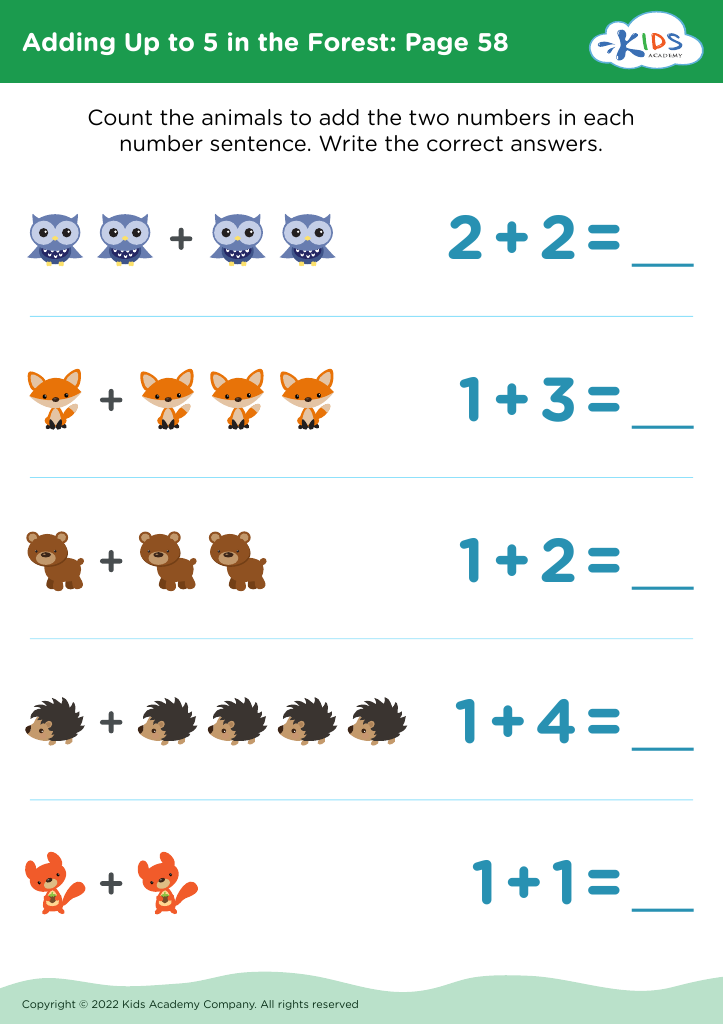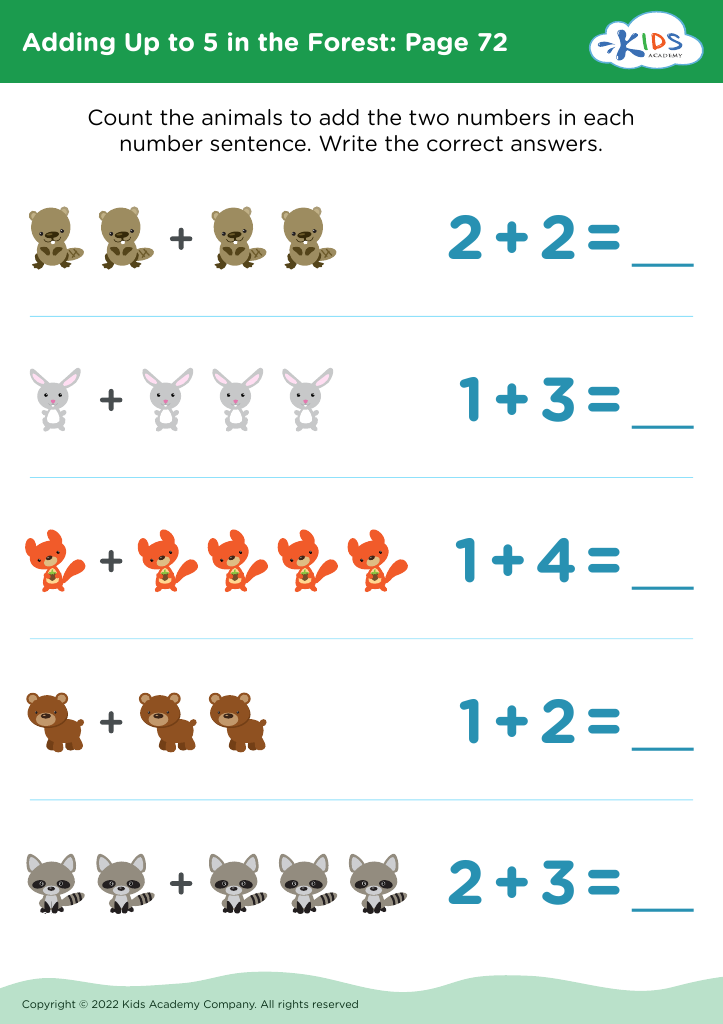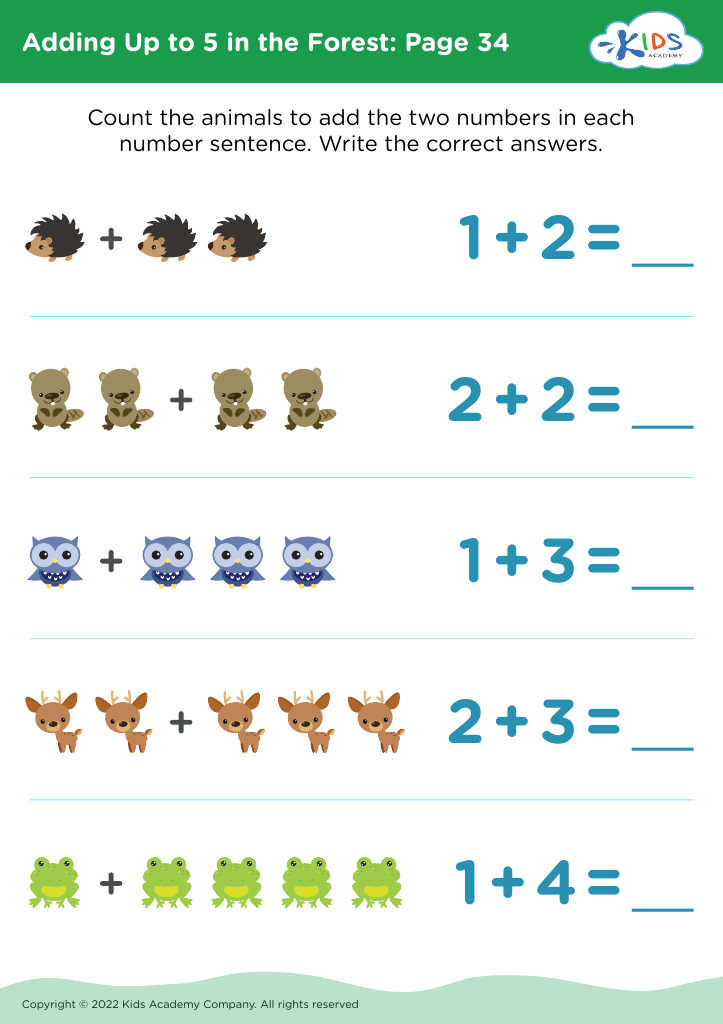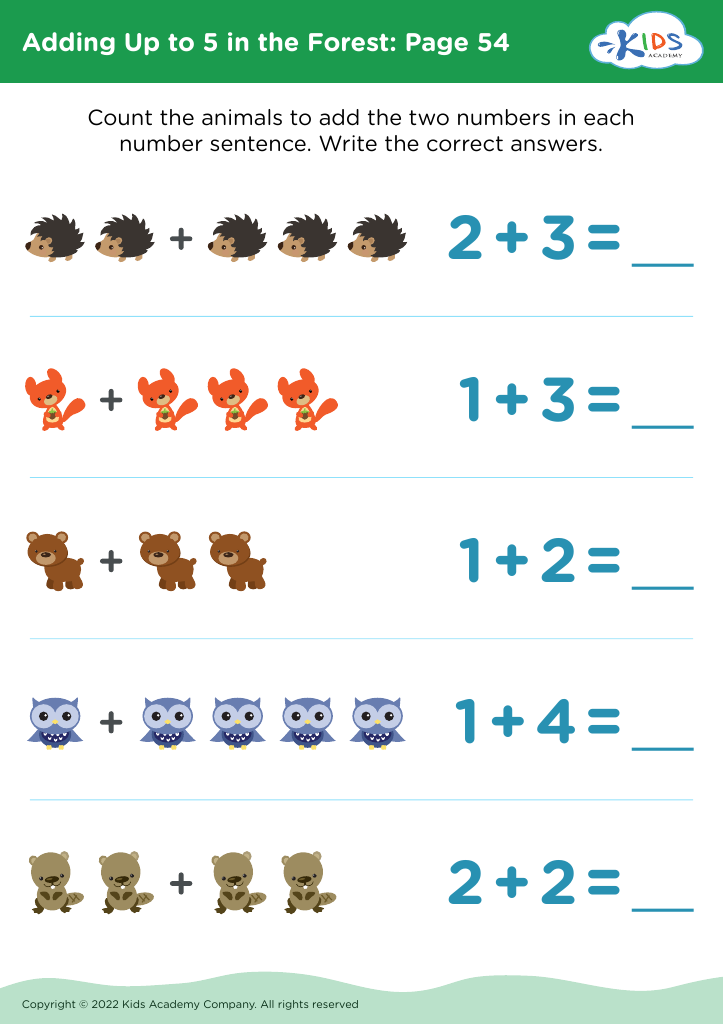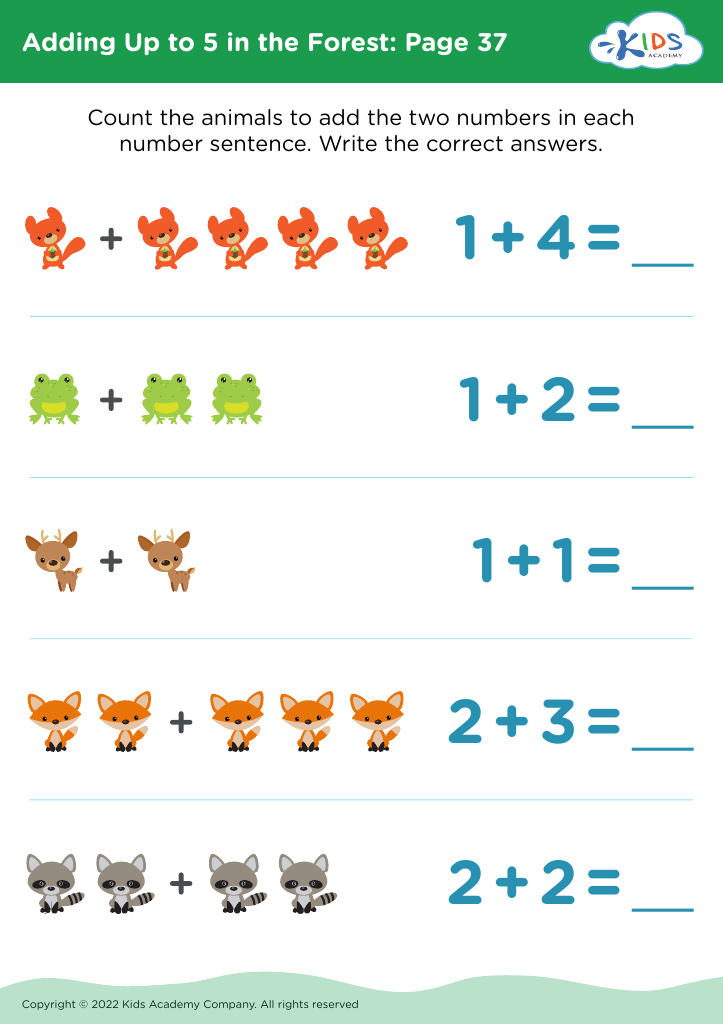Nature appreciation Math Worksheets for Ages 5-9
5 filtered results
-
From - To
Discover the joy of learning with our Nature Appreciation Math Worksheets for ages 5-9! These engaging worksheets connect the beauty of nature with essential math skills, making learning fun and interactive. Designed to foster curiosity and a love for the environment, each worksheet features vibrant illustrations and age-appropriate challenges such as counting leaves, measuring plants, and exploring shapes found in nature. Ideal for classrooms or at-home learning, our resources encourage children to develop math proficiency while sparking their interest in the natural world. Inspire your young learners to appreciate their surroundings while building their math skills today!
Nature appreciation math offers a unique and engaging approach to learning for children aged 5 to 9. This method combines mathematical concepts with outdoor exploration, fostering a deep connection to nature while enhancing critical skills. Parents and teachers should care about this integrated approach for several reasons.
First, it promotes holistic development. By blending math with environmental studies, children strengthen their cognitive skills and develop an appreciation for the natural world. This dual emphasis encourages them to think critically about patterns, shapes, and measurements found in their surroundings.
Second, nature-based activities can cement math concepts in meaningful contexts. For example, counting leaves, measuring trees, or exploring symmetry in flowers allows kids to visualize mathematical principles, fostering better retention and understanding.
Additionally, outdoor learning experiences encourage physical movement and creativity, counteracting sedentary habits prevalent in today’s technology-driven age. Engaging with nature inspires curiosity and wonder, nurturing a lifelong love of learning.
Finally, instilling an appreciation for nature at an early age fosters environmental stewardship, teaching children about the importance of conservation and sustainability. This interconnected approach not only enhances a child’s academic skills but also nurtures responsible global citizens. Overall, nature appreciation math enriches educational experiences, benefitting both children and the broader community.

